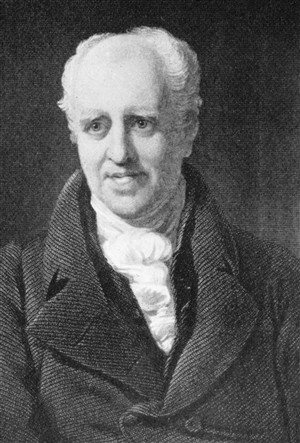
George Crabbe combined three careers: doctor, minister, and writer. Born in Aldeburgh, a fishing village in Suffolk, he served his apprenticeship to an apothecary, and then set up as a surgeon-apothecary in 1775. He abandoned this career four years later and went to London to earn his living as a writer. In 1782 he was ordained priest and became chaplain to the Duke of Rutland. He held several livings thereafter, and finally in 1814 became rector of Trowbridge, Wiltshire, where he spent the rest of his life.
Crabbe's long literary career divides into two parts: the poems, — notably 'The Village' (1783), published during or shortly after his early stay in London; and the long series of works beginning with 'Poems' (1807), which includes 'The Parish Register' and 'Sir Eustace Grey';'The Borough' (1810), 'Tales in Verse' (1812), 'Tales of the Hall' (1819), and the inferior 'Posthumous Tales' (1834). This series shows Crabbe moving from static description and portrait toward narrative, until he achieves something which approaches a group of linked short stories in verse. His work, in its low-keyed, realistic, unsentimental picture of rural life, represents less the last gasp of eighteenth-century poetry than a reaction to it different in direction from Wordsworth's. It is indicative of the kind of work Crabbe produced that Thomas Hardy admired and was influenced by him.